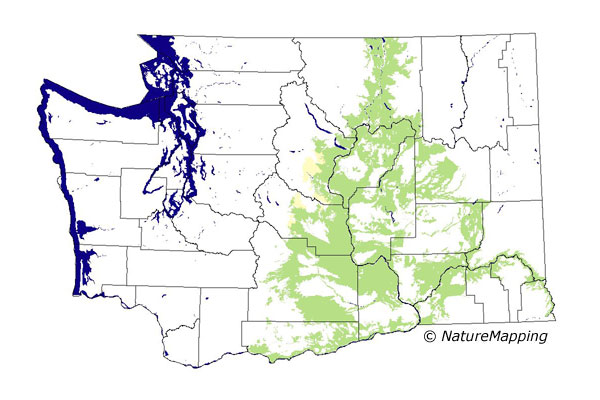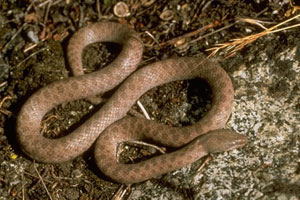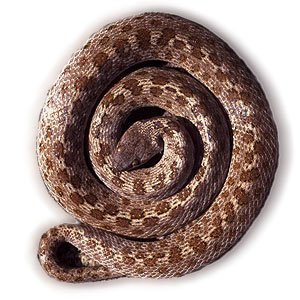


Night Snake (Hypsiglena torquata) What they look like: Night Snakes are pale grey, beige or light brown reptiles. They have brown paired blotches on their back and usually three large black blotches on the neck. The venter is whitish or yellow. The head is flat, with vertical pupils, and a brown bar behind the eyes. The scales are smooth and glossy. 
Where they live: Night snakes are found in dry hot areas of the western United States and British Columbia, Canada. Habitats include cliffs, talus slopes, grasslands, shrub savannas, shrublands, rivers and riparian wetlands. Click the map for information about the habitat and range of the Night Snake in Washington. What they eat: The saliva of the night snake is mildly venomous, which helps them capture small prey, including reptiles and amphibians. They normally eat lizards, lizard eggs, small snakes, frogs and toads. 
Reproduction: The night snake lay eggs in June and July. The eggs of this species are laid in rocky areas. Females deposit 3 to 9 (usually 4) eggs, which hatch in about two months. Abandoned mammal burrows may also be used as nest sites for the night snake. Little is known about their breeding habits, except that they are an oviparous species (their young develop in eggs outside of their mother's body). Behavior: When disturbed, the night snake may flatten its head, coil tightly, and vibrate the tail - appearing as a viper (see photo). However, it is a gentle species that is easily handled. They are considered to be rear-fanged venomous, but not dangerous to humans. It's a small, secretive snake most often found beneath rocks on rugged hillsides between May and September. As their common name implies, they are primarily nocturnal (active at night).
Did you know?
More Information: Night Snake - Reptiles of British Columbia Animal silhouettes available to purchase » Photo Credit: TM, Chris Brown (USGS) Home | About Us | How to Participate | Biodiversity Modules | Projects | Maps | News | Resources |